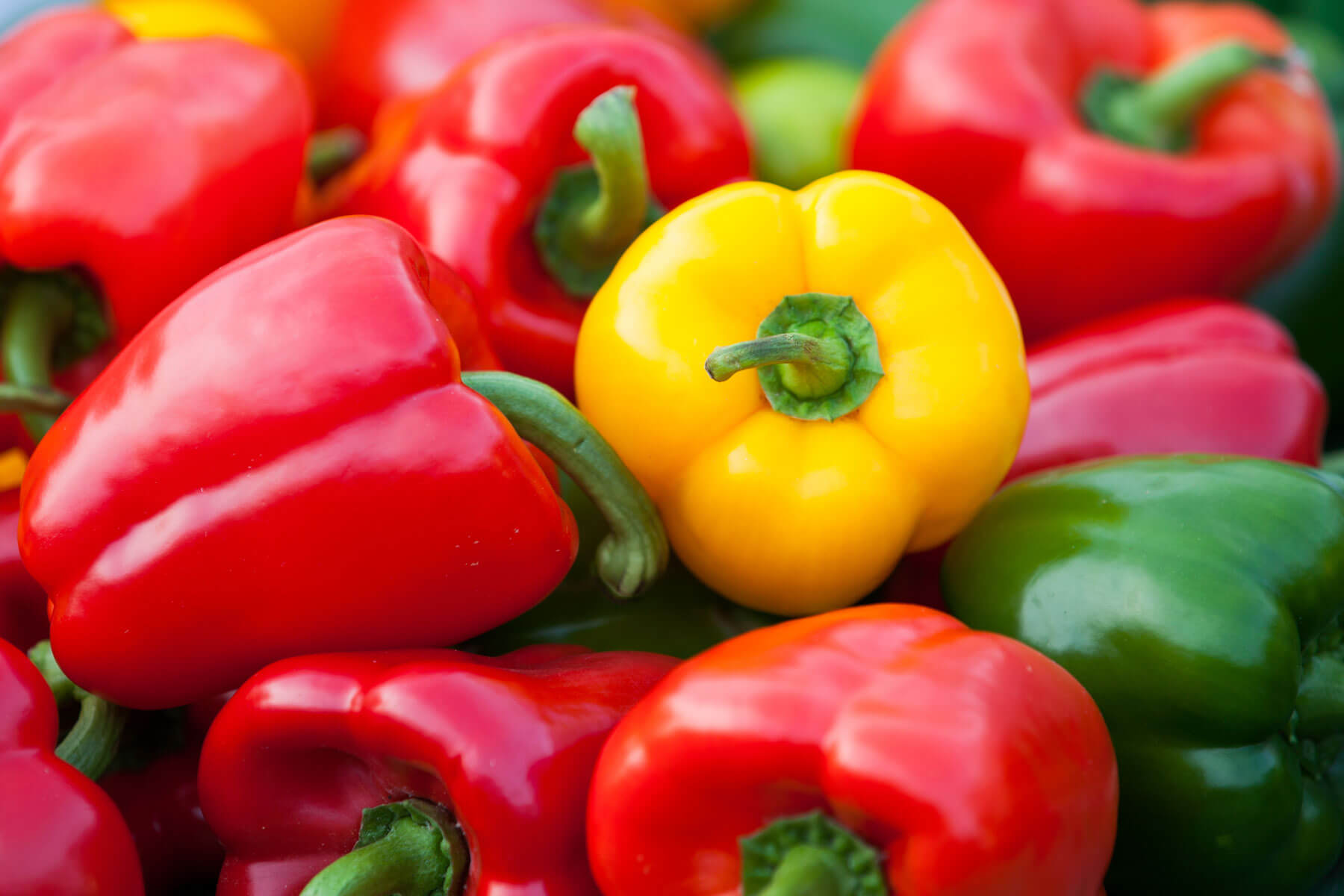Organic Vs. Synthetic Fertilizers: Which Is Best for Nurturing Healthy Pepper Plants?
In the world of supporting healthy pepper plants, the choice between organic and artificial plant foods stands as an essential decision with far-reaching effects. While both alternatives goal to supply necessary nutrients to sustain plant growth, the subtleties of their influence on the dirt, plant health and wellness, and the environment spark a debate that mirrors throughout the horticulture community. Recognizing the distinctive benefits and potential pitfalls of each plant food type is critical for pepper cultivators seeking to enhance their yields while keeping a sustainable and eco-conscious technique.
Benefits of Organic Plant Foods
Organic fertilizers use a sustainable and environmentally-friendly method to beneficial pepper plants, offering essential nutrients without using synthetic chemicals. These all-natural fertilizers are originated from natural resources such as compost, manure, bone meal, and algae, advertising dirt wellness and biodiversity. Unlike synthetic fertilizers, organic choices launch nutrients slowly, ensuring a constant and balanced supply for pepper plants to thrive.
One considerable advantage of organic fertilizers is their capability to boost soil structure and water retention. By improving dirt health, organic fertilizers advertise advantageous microbial task, which assists in nutrient uptake by pepper plants. Additionally, organic fertilizers minimize the threat of chemical run-off, protecting water sources from contamination and safeguarding the environment.
Moreover, natural plant foods add to lasting soil fertility by promoting the growth of useful soil microorganisms. These microorganisms aid damage down natural issue, launching nutrients in a kind that is easily accessible to pepper plants. best fertilizers for peppers. By fostering a healthy soil environment, natural plant foods sustain lasting pepper growing techniques that profit both plants and the setting
Downsides of Artificial Plant Foods
Artificial fertilizers, in contrast to their natural counterparts, pose numerous downsides when used to nurture pepper plants, affecting both plant health and ecological sustainability. One major downside of artificial plant foods is their tendency to seep nutrients from the soil quickly.
In addition, the overuse of synthetic plant foods can add to water pollution. Excess plant foods not absorbed by plants can clean away into water bodies, bring about eutrophication, where algae flowers diminish oxygen levels in the water, damaging aquatic life. Artificial fertilizers are normally derived from non-renewable sources, such as fossil gas, contributing to carbon discharges and ecological deterioration throughout their production.
Nutrient Absorption Comparison
When contrasting natural and artificial plant foods in terms of nutrient absorption, natural fertilizers have the advantage of offering a much more balanced and slow-release source of nutrients. Organic fertilizers include a selection of macro and trace elements that are not just helpful for the plants yet additionally advertise healthy and balanced dirt microbial task, which helps in nutrient uptake.
Moreover, organic fertilizers enhance soil structure and water retention capacity, allowing pepper plants to access nutrients more efficiently. This better dirt top quality promotes root advancement, allowing much better nutrient absorption. Synthetic plant foods, although originally improving plant growth as a result of their high nutrient focus, may hinder lasting nutrient absorption by derogatory soil health over time.
Ecological Effect Considerations

On the other hand, artificial plant foods, although frequently even more concentrated and immediately readily available to plants, can have detrimental results on the environment otherwise applied appropriately (best fertilizers for peppers). Their production needs high power inputs, resulting in greenhouse gas emissions and adding to environment change. In addition, the runoff of excess artificial fertilizers can pollute water sources, causing eutrophication and damaging water ecological communities.
Ideal Fertilizer Practices for Peppers
When fertilizing pepper plants, enhancing nutrient uptake and decreasing environmental effect are crucial factors to consider. To achieve this, it is necessary to comply with ideal plant food techniques customized to the details needs of pepper plants. One essential method is to carry out a soil test before applying any type of fertilizers. This test can identify the this website pH level of useful link the soil and identify any nutrient deficiencies, guiding you in selecting the most ideal plant food solution.
One more essential practice is to fertilize pepper plants at the correct time. Typically, peppers take advantage of obtaining plant food at planting and afterwards again when they begin to blossom. Over-fertilizing can lead to vitamins and mineral imbalances and harm the plants, so it is important to adhere to suggested application rates.
In addition, selecting a balanced plant food with an NPK ratio that suits pepper plants' needs is essential. Organic fertilizers, such as garden compost or manure, can be exceptional choices as they launch nutrients slowly and boost soil structure gradually. Synthetic plant foods can offer a fast nutrient boost when required. Eventually, combining organic and synthetic plant foods carefully can help support healthy and balanced pepper plants while lessening ecological effect.
Conclusion

Organic plant foods offer a sustainable and environmentally-friendly strategy to nourishing pepper plants, offering crucial nutrients without the use of synthetic chemicals. Unlike synthetic plant foods, natural options release nutrients slowly, making sure a well balanced and constant supply for pepper plants to thrive.
Synthetic fertilizers, in contrast to their organic counterparts, present numerous disadvantages when used to nourish pepper plants, affecting both plant wellness and ecological sustainability. When contrasting artificial and natural plant foods in terms of nutrient absorption, natural plant foods have the advantage of providing a more balanced and slow-release source of nutrients.Moreover, natural plant foods boost dirt framework and water retention capacity, allowing pepper plants to access nutrients more efficiently.
Comments on “Check Out the Best Fertilizers for Peppers and Enhance Your Yard's Yield”